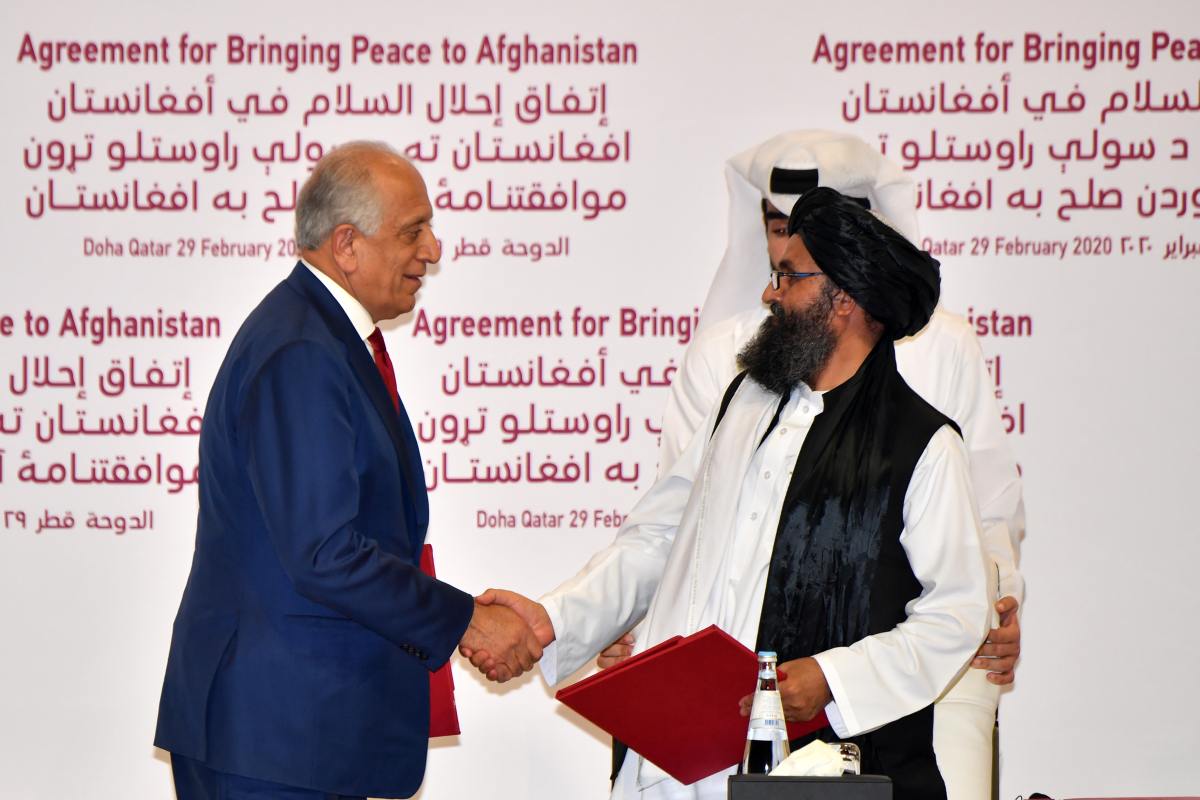US election could decide fate of 70,000 Afghans
The Taliban, an ultraconservative Islamic political group, retook control of Kabul a little more than three years ago, dashing many Afghans’ hopes for a tolerant, democratic government.
Contretemps there will be on so volatile an issue, but these at the moment ought not to detract from the achievement per se.

US Special Representative,Taliban co-founder Mullah Abdul Ghani Baradar (Photo by Giuseppe CACACE / AFP)
Saturday’s deal between the United States of America and the Taliban has within 24 hours been somewhat jolted at the threshold with the Afghan President, Ashraf Ghani, rejecting the militant demand for the release of 5,000 prisoners, indeed a condition for further talks. Contretemps there will be on so volatile an issue, but these at the moment ought not to detract from the achievement per se. The agreement will lead to US troop withdrawals, a pullout that will be matched with detailed commitments by the Taliban to contain the awesome violence.
Further negotiations will hopefully begin between the government in Kabul and the Taliban, with Donald Trump expected to pull up a chair. President Ghani’s backtracking can only complicate matters. Not the least because under the accord, the US and the Taliban are committed to work expeditiously to release combat and political prisoners as a confidence-building measure, with the coordination and approval of all sides. The agreement calls for up to 5,000 Taliban prisoners to be released in exchange for up to 1,000 Afghan government captives by 10 March.
This is the bedrock of the deal, a pivotal provision on which President Ghani appears to have an issue. The US is yet to respond to what has been called a major stumbling block. Ghani has let it be known that it was “not in the authority of the United States to decide” about the swap, because it was “only a facilitator”, adding that Trump had not asked for the release of the prisoners and the issue should be discussed as part of a comprehensive peace agreement. “The political consensus that would be needed for such a major step does not exist today,” he said.
Advertisement
Theoretically, he may not be off the mark, yet it does devolve on Presidents Ghani and Trump to ensure the deal reached in Doha is earnestly given a try. President Ghani has let it be known that key issues need to be discussed first, including the Taliban’s ties with Pakistan and other countries that had offered it sanctuary, its ties with terrorist groups and drug cartels, and the place of Afghan security forces and its civil administration. The people of Afghanistan,” he said, “should be led to believe that we’ve gone from war to peace, and not that the agreement will be either a Trojan horse or the beginning of a much worse phase of conflict.”
Both the US and the Taliban could argue that such pregnant issues ought to have been resolved at the conference. Far from it. Both sides will now realize that the complications have arisen in the absence of the Afghan government’s participation in the prolonged talks. The Taliban has been decidedly against the presence of the Kabul representatives at the high table. Nonetheless, a critical measure of forward movement has been achieved. Much will hinge on the follow-through and the dramatis personae ~ the Afghan government, the United States, and the Taliban ~ who have a critical role to play in this triangular endgame.
Advertisement